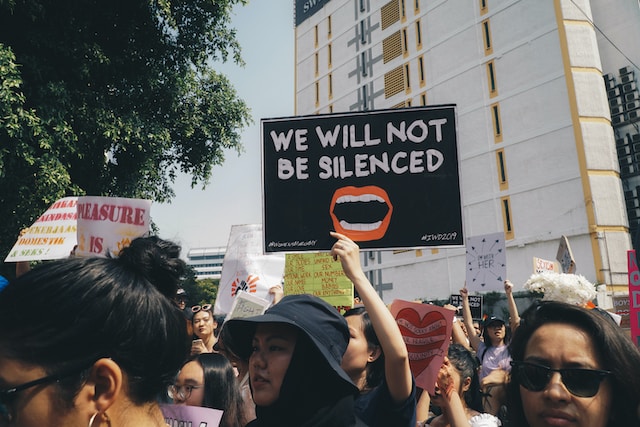Women’s Rights Around the World: 5 Wins and 5 Losses in 2023

The year 2023 has brought both progress and challenges for women’s rights around the world. From legislative victories to persisting inequalities, the landscape is dynamic. In this examination, we explore five significant wins and five poignant losses that have shaped the narrative of women’s rights in 2023.
Wins:
Gender Parity in Boardrooms:
- Several countries have successfully implemented policies to promote gender diversity in corporate boardrooms. This marks a significant win, breaking the glass ceiling for women in executive positions.
- Norway’s quota system has mandated that women hold 40% of board seats in public companies, leading to a significant increase in female representation in corporate leadership.
Legislation against Gender-Based Violence:
- Stronger legal frameworks have been enacted in various nations to combat gender-based violence. These laws aim to protect women from domestic abuse, harassment, and discrimination, signaling a step forward in ensuring women’s safety.
- India’s recent amendments to its sexual assault laws, introducing stricter penalties and expanding the definition of offenses, represent a step forward in addressing gender-based violence.
Reproductive Rights Advancements:
- Positive strides have been made in protecting and expanding women’s reproductive rights. Access to contraceptives, safe abortion practices, and comprehensive sexual education are gaining ground, empowering women to make informed choices about their bodies.
- The expansion of telemedicine services in the United States has improved access to reproductive healthcare, including consultations for birth control and medication abortion, especially in underserved rural areas.
Political Representation:
- More women are taking center stage in politics globally. Increased representation in legislative bodies and leadership positions reflects a growing recognition of the importance of diverse voices in shaping policies.
- In New Zealand, Prime Minister Jacinda Ardern’s leadership during the COVID-19 pandemic showcased the effectiveness of women in top political roles, inspiring increased interest and support for women in politics globally.
Global Collaboration for Women’s Empowerment:
- International alliances and partnerships have been forged to address women’s issues collectively. This collaborative approach fosters the exchange of ideas and resources, amplifying the impact of efforts to improve women’s rights globally.
- The “Generation Equality” forum convened by UN Women has brought together governments, corporations, and NGOs to commit to concrete actions for gender equality, fostering a collaborative and coordinated approach.

Losses:
Persistent Gender Pay Gap:
- Despite ongoing efforts, the gender pay gap remains a pervasive issue. Women continue to earn less than their male counterparts for similar work, highlighting a systemic problem that requires sustained attention and intervention.
- Despite progress, the gender pay gap still exists globally. In the United States, women earn approximately 82 cents for every dollar earned by men, highlighting the enduring wage disparity.
Erosion of Reproductive Rights in Certain Regions:
- In some areas, there has been a rollback of reproductive rights, limiting women’s access to essential healthcare services. This regression poses a threat to the hard-won victories in the realm of reproductive freedom.
- Restrictive abortion laws, tightened in 2023 in Poland and the United States, have curtailed women’s reproductive rights, leading to widespread protests and international criticism.
Online Harassment and Cyberbullying:
- The rise of online harassment poses a serious threat to women, inhibiting their ability to express themselves freely on digital platforms. This issue underscores the need for improved online safety measures and regulations.
- The increase in online harassment of female journalists, exemplified by instances where women like Maria Ressa in the Philippines face threats and attacks, underscores the urgent need for digital platforms to address this issue.
Stalled Progress in Closing Educational Gaps:
- Disparities in educational opportunities persist, hindering progress towards achieving gender equality. Efforts must be intensified to ensure that girls have equal access to quality education at all levels.
- In several countries, girls’ education is still disproportionately limited by law, and by factors like child marriage and lack of access to sanitary facilities, hindering progress toward closing the educational gender gap.
Resistance to Women in Leadership:
- Despite increased representation in some spheres, resistance to women assuming leadership roles remains a challenge. Overcoming stereotypes and biases is crucial to fostering an environment where women can thrive in leadership positions.
- The backlash against female leaders, exemplified by the misogynistic attacks on Chancellor Angela Merkel in Germany during her tenure, highlights the entrenched gender biases that women in leadership roles continue to face.
Conclusion:
As we reflect on the wins and losses in women’s rights around the world in 2023, it is evident that the journey toward equality is multifaceted. Celebrating victories is essential, but addressing persistent challenges is equally crucial. The collective efforts of individuals, communities, and nations are instrumental in shaping a future where women’s rights are unequivocally respected and protected.
*******
Ms. Career Girl strives to provide valuable insights you can use. To see more from our columnists and guest authors, check these out! Or subscribe to our weekly email featuring our latest articles. We’re also present on Medium!

